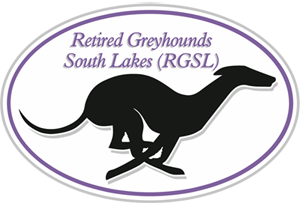House Training
Greyhounds are generally 'kennel clean' whilst in kennels - most won't soil where they sleep.
The trick to house training is to teach your greyhound that your home is now their new kennel and your yard or garden is now the place where they do their toilet.
When you get your new greyhound home the first few minutes are the most important. As soon as you get home you should walk him in through the door you normally enter the house by, then straight out the door leading to your yard or garden. Once in the yard or garden allow him to wander around and do his toilet for which he should be praised, then brought back in the house again.
Basically, what you are telling him is "this is the way into your new kennel, this is the way out to your yard where you do your toilet and after you've done it this is the way back into your kennel" Once they understand this all you need to learn is his way of telling you he wants out. This is also a good rule if you visit friends or family. If you don't tell him where he can do his toilet in this new building he will become unsettled and do it anywhere, which can be an embarrassment to you - and him. It is your responsibility as pack leader to tell him where he should go to do his toilet.
If he has an accident anywhere other than in front of the door to the yard or garden he hasn't realised the way out to where he has to go. If he has an accident in front of the closed door he needs to go through to the garden it shows he knows he needs to do it outside, but hasn't learnt how to tell you or you haven't learnt his sign for wanting to go out. Whimpering, whining, nudging you and pacing are all signs they want to go out and they are trying to tell you.
A dog will only urinate or soil in an area where it feels safe. This is because in the wild, and the instincts are still there, it’s vulnerable to predators attacking. This is also why a dog will circle a few times before either doing it’s toilet or laying down. It’s making sure the location is safe to do so.
When a dog feels insecure with the outside world, which is sometimes the case with dogs going to new homes, he will hold back from doing his toilet until he’s either back in his garden or his house where he feels safe. If he doesn’t do anything, or not enough on his walk leave him in the garden when you return for a few minutes, this will give him time to do what he needs. If you take him straight back in the house after your walk the chances are he will do what he needs to in the house.
When an insecure dog is let out last thing at night all he wants to do is to get back inside, and he quickly learns that when you let him out and watch him, if he does a wee you will think he’s done and let him back in where it’s safe. However, what he’s done is only a token gesture, he hasn’t ‘emptied’ as he must last thing at night in order to get through the night without wanting to go again. When you let him out last thing at night he must stay out a good five or ten minutes and you mustn’t watch him. When he realises he doesn't have an audience he will give up, wander off and do all he should do.
As soon as he’s been fed he should go in the garden for a few minutes as many will urinate and/or poo straight after eating.
One trick to helping him go through the night without an accident is to let him in the garden twice after 9 pm.
If there is an accident in the house growl at him and do a deep grumble all the while you are cleaning it up. Despite what some say they do know it’s their’s as it has their smell. When you are happy with him your communication is in your normal or slightly higher tone. When you are unhappy with him you drop your voice to a lower more deep almost growling tone. Tone tells him whether you are happy or unhappy with him. The fact you are growling all the while you are cleaning up his accident tell him you are not happy. If you catch him doing it growl at him and lead him to the door saying the word you use to tell him to go and ‘do’. Put him outside for a few minutes and when you let him back in praise him as if he’d done something. The growl at him doing it in the house tells him you are displeased, the praise when he comes in from outside tell him you are pleased with him.
If he has an accident in the house do the new dog training routine again for one day, that is – take him to the garden ever hour during the day so he can do his toilet outside, unless he’s asleep or on his bed when the hour is up, then you leave him, but the moment he stands you take him to the garden and praise him when he comes back in. If you do this for the remainder of the day he had his accident it reduces the risk of him doing it again and the rest of the day he gets praises with no growls.
